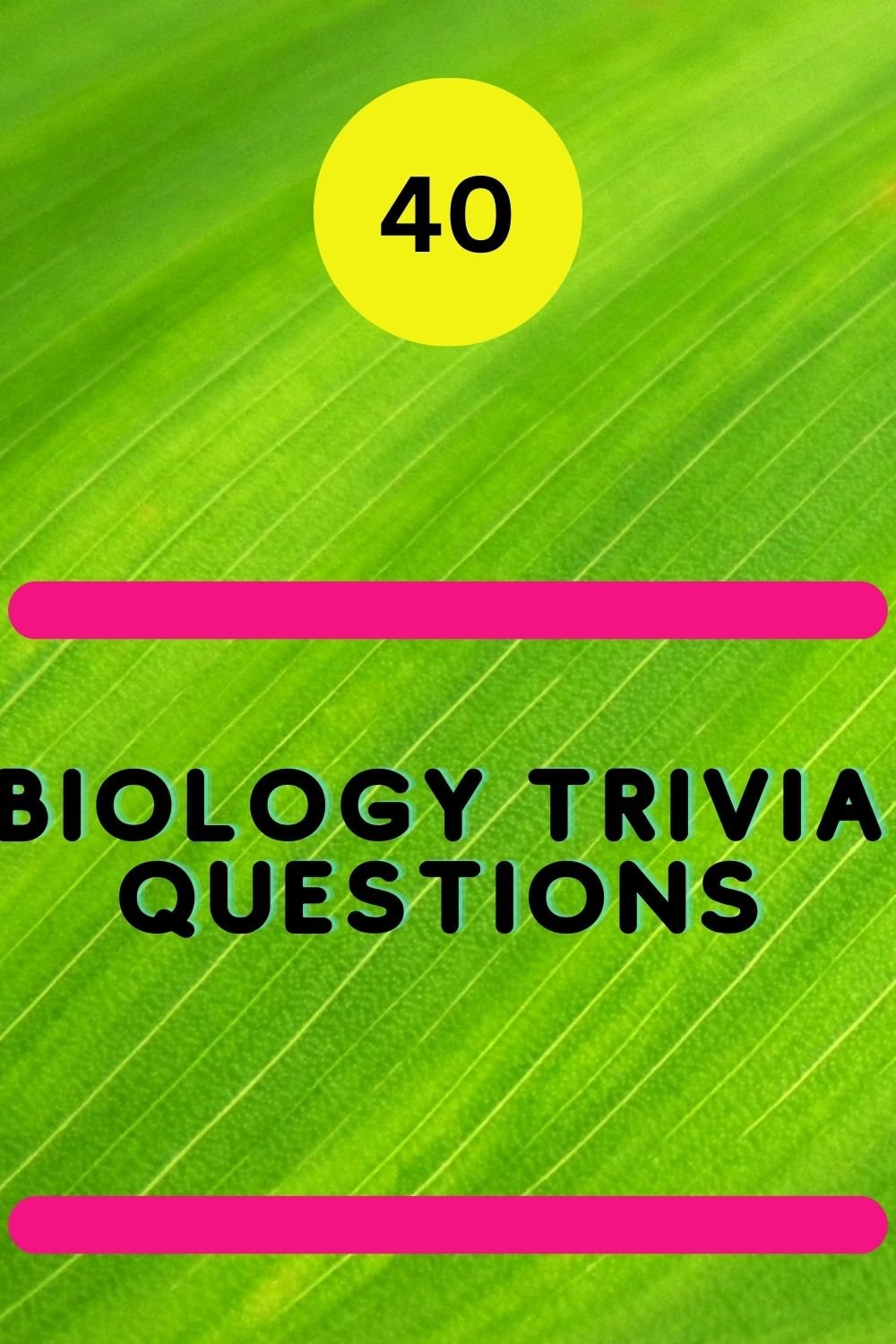Step into the fascinating world of biology, where the intricate web of life’s mysteries is waiting to be unraveled. From the tiniest cells to the grandeur of ecosystems, the realm of biology offers a treasure trove of captivating facts and discoveries. Spanning diverse species and ecosystems, the story of life on Earth is both awe-inspiring and enigmatic. As we embark on a journey through the wonders of the natural world, we delve into the realm of “40 Biology Trivia Questions.”
Embark on a journey of scientific exploration as we delve into the realms of Biology Trivia Questions. This intriguing compendium is designed to engage curious minds and scientific enthusiasts alike. From the intricate mechanisms of DNA replication to the marvels of adaptation in various species, these questions uncover the intricacies of life’s building blocks. Spanning genetics, ecology, and the intricacies of the human body, this collection invites you to uncover the hidden patterns of life.
Biology, a tapestry of interconnected life forms, bridges the gaps between species and ecosystems, providing a deeper understanding of our world’s intricacies. Dive into captivating questions that unravel the mysteries of evolution, the diversity of biomes, and the delicate balance of ecosystems. Beyond mere trivia, these questions shed light on the interconnectedness of life forms and the delicate harmony of nature. Join us in exploring the fascinating world of biology, one question at a time, and deepen your appreciation for the complexity of life that surrounds us.
If you loved these trivia questions, you might also want to try our Classical Music Trivia Questions.
Biology Trivia
#1. Which gas do plants take in during photosynthesis?
#2. What is the term for the male reproductive cells in animals?
#3. What is the name of the process by which a cell divides into two identical daughter cells?
#4. What is the hard outer layer of a bone called?
#5. Which type of blood vessel carries oxygenated blood away from the heart?
#6. What is the smallest bone in the human body?
#7. What is the pigment responsible for the color of human skin, hair, and eyes?
#8. Which part of the eye is responsible for focusing light onto the retina?
#9. What is the smallest unit of life?
#10. What is the green pigment found in plant cells that is involved in photosynthesis?
#11. What is the process by which organisms break down food to release energy?
#12. What is the process by which plants take in water and nutrients through their roots?
#13. Which organ is responsible for filtering waste and excess fluid from the blood?
#14. What is the process by which plants make their own food using sunlight?
#15. Which type of reproduction involves the fusion of egg and sperm to form a new individual?
#16. What is the process by which organisms exchange gases with their environment?
#17. What is the process by which certain plants bend and grow toward a source of light?
#18. Which organ is responsible for producing bile to aid in digestion and metabolism?
#19. What is the study of interactions between organisms and their environment?
#20. Which organ in the human body produces insulin?
#21. What is the name of the structure that connects muscles to bones?
#22. What is the name of the fluid-filled sac that surrounds and cushions the developing embryo in mammals?
#23. What is the protein responsible for muscle contraction?
#24. What is the basic structural and functional unit of the nervous system?
#25. What is the process by which water vapor is released from the surface of plant leaves?
#26. Which type of joint allows for the widest range of movement?
#27. What is the outermost layer of the skin called?
#28. What is the process by which a cell copies its DNA to prepare for cell division?
#29. What is the main function of white blood cells in the immune system?
#30. What is the hormone responsible for regulating blood sugar levels in the body?
#31. What is the name of the enzyme found in saliva that starts the digestion of carbohydrates?
#32. What is the term for the process by which animals release heat to maintain a stable body temperature?
#33. What is the process by which animals eliminate waste from their body?
#34. Which part of the brain controls balance and coordination?
#35. Which molecule stores genetic information in cells?
#36. Which organelle is responsible for generating energy in a cell?
#37. What is the largest organ in the human body?
#38. What is the sac-like structure that stores bile produced by the liver?
#39. What is the name of the protein that carries oxygen in red blood cells?
#40. Which part of the digestive system is responsible for absorbing nutrients into the bloodstream?





